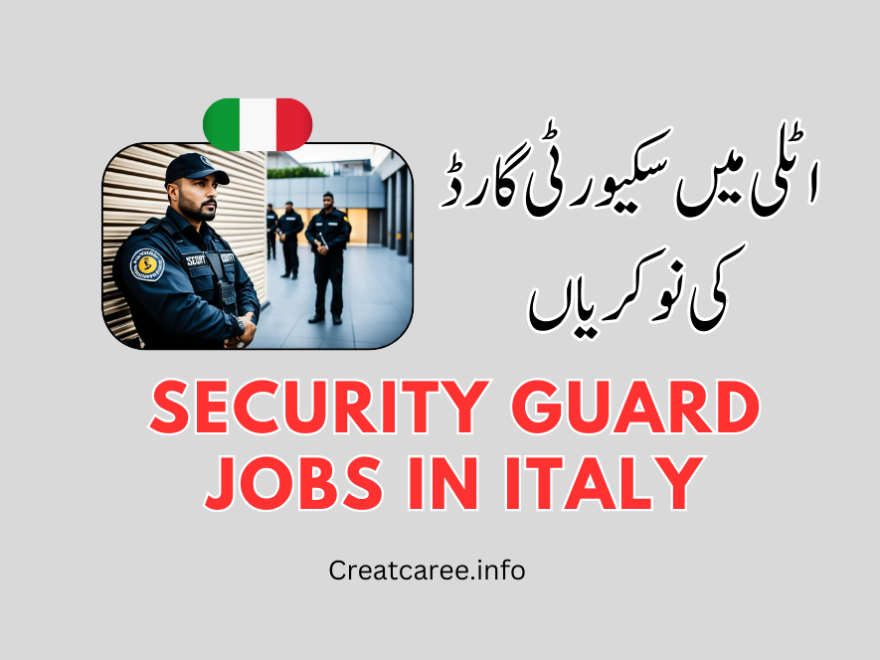In Italy, security guards play an essential role in maintaining the safety and security of various establishments, including residential areas, commercial properties, government buildings, and industrial sites. As the demand for security services continues to rise, the profession offers a variety of job opportunities. This article provides a detailed overview of security guard jobs in Italy, including salary expectations, educational requirements, job responsibilities, and the benefits associated with the profession.
Thank you for reading this post, don't forget to subscribe!Key Responsibilities of a Security Guard
Security guards in Italy are responsible for protecting property, ensuring the safety of individuals, and preventing criminal activity. Their duties can include:
- Monitoring surveillance equipment and alarms
- Patrolling designated areas
- Checking identification and permits at entry points
- Responding to security breaches or emergencies
- Reporting safety hazards or suspicious activity
- Writing detailed reports on incidents
Salary Expectations for Security Guards in Italy
The salary for security guards in Italy varies depending on factors such as experience, location, and the type of employer. Below is an estimate of the monthly salary for security guards across different experience levels. The table also includes the FQS (Fair Qualification Salary), which reflects the average compensation based on qualifications and industry standards.
| Experience Level | Monthly Salary (EUR) | Apply Now |
|---|---|---|
| Entry-Level (0-2 years) | 1,200 – 1,500 | Apply Here |
| Mid-Level (2-5 years) | 1,500 – 1,800 | Apply Here |
| Experienced (5+ years) | 1,800 – 2,300 | Apply Here |
| Senior/Managerial Roles | 2,500 – 3,000 | Apply Here |
Educational Requirements and Qualifications
While a formal university degree is not typically required for security guard roles, candidates must meet certain educational and professional standards:
- Minimum Educational Requirement:
- Typically, candidates should have at least a high school diploma (or equivalent) to qualify for a security guard job.
- Security Guard Training:
- In Italy, security guards must complete specific training courses, which are certified by the Italian Ministry of the Interior.
- These courses cover various aspects of security work, including surveillance techniques, emergency response, and legal rights.
- Licensing:
- A valid security guard license is required in Italy. This can only be obtained after successfully completing the training and passing a specific exam administered by the relevant authorities.
- Physical Fitness:
- Security guards may need to meet certain physical fitness standards, as the job can involve long hours of standing, patrolling, or responding to emergencies.
- Additional Skills:
- Proficiency in Italian (and sometimes English) is essential.
- Good communication and problem-solving skills are critical, particularly when dealing with the public or handling tense situations.
Factors Affecting Salary:
- Location: Security guards working in major cities like Rome, Milan, or Florence tend to earn more than those in rural areas due to the higher cost of living and the demand for security services in urban centers.
- Industry: Jobs in high-security industries such as banking, government, or luxury goods often offer higher salaries than roles in general security services.
- Shift Work: Night shifts and weekends may come with additional pay, reflecting the unsocial hours.
Benefits and Facilities for Security Guards
Security guard jobs in Italy typically offer several benefits, although these can vary by employer. Some common benefits include:
- Healthcare: Many employers provide access to private health insurance or contribute to Italy’s public healthcare system.
- Retirement Plans: Security guards are usually enrolled in Italy’s pension system, which provides financial support during retirement.
- Paid Time Off: Security guards receive vacation days and public holidays off. The exact number of paid leave days can vary depending on the employer.
- Uniform and Equipment: Employers often provide uniforms, radios, and other necessary equipment for performing the job.
- Overtime Compensation: Overtime work is often compensated at a higher rate, especially during nights or weekends.
- Job Stability: Security jobs tend to be relatively stable, especially in industries that require consistent security services, such as airports, banks, and large companies.
Work Environment and Opportunities for Career Growth
Security guard roles in Italy are typically full-time, with shift work being common due to the nature of the job. In terms of career growth, security guards can advance to supervisory or managerial positions such as:
- Security Supervisor: Overseeing a team of security guards.
- Security Manager: Responsible for managing the overall security operations for large organizations or facilities.
- Training Officer: Conducting training for new recruits in the security field.
Some security guards may also choose to specialize in areas such as:
- Cybersecurity (increasingly important in the digital age)
- Event Security (for concerts, sports events, etc.)
- Close Protection (bodyguard services)
Conclusion
Security guard jobs in Italy offer a stable career option with competitive salaries, especially for those with experience and the right qualifications. While the job can be demanding, the benefits and opportunities for career growth make it an attractive option for those interested in the field of security. With the proper training and certifications, individuals can find rewarding positions that offer both personal satisfaction and financial security.
